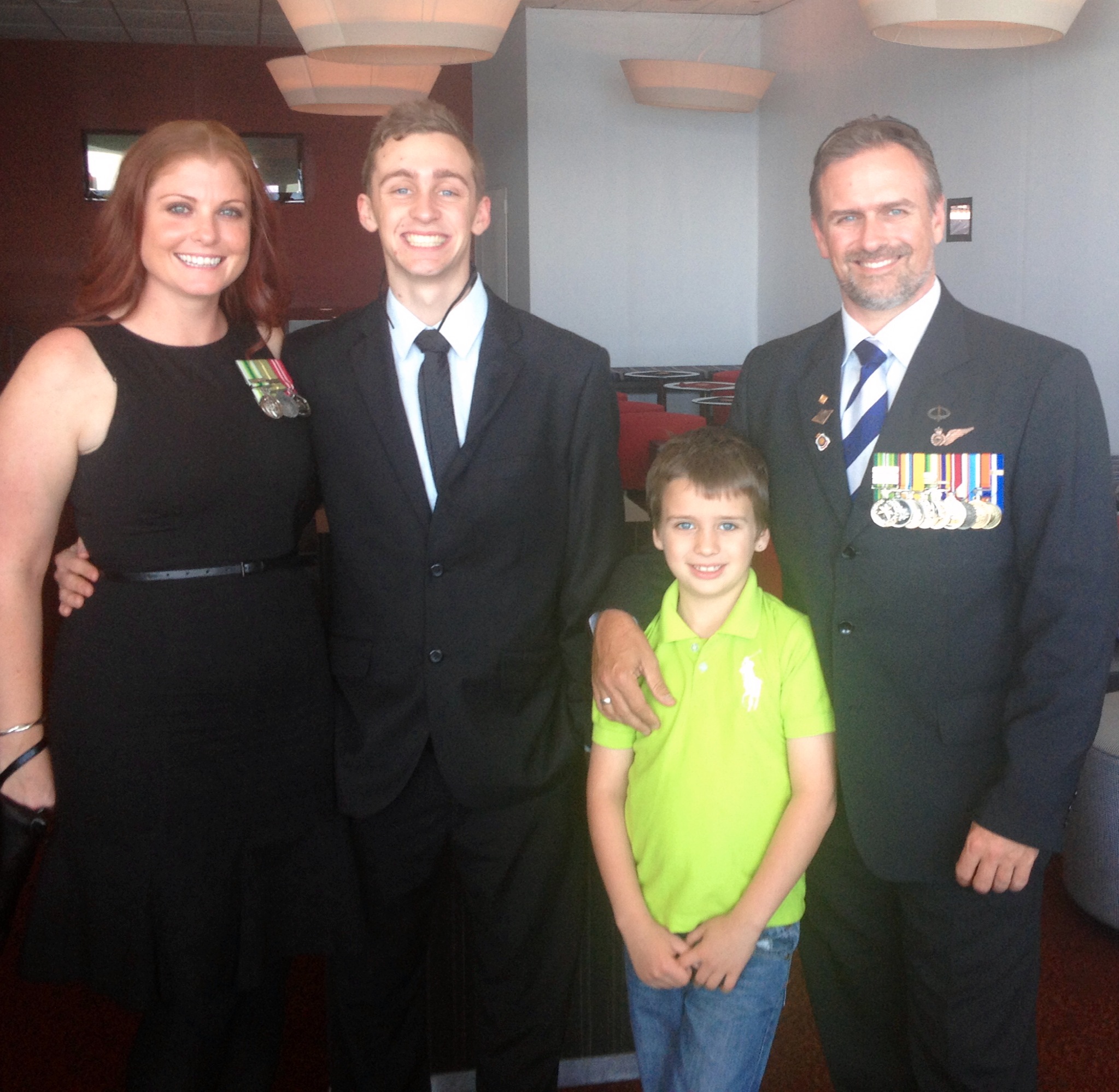Australian Military Families Research Program

Photo: "A dual serving family" in the Australian Military
Potential research collaborators and prospective HDR (e.g., PhD) student might be interested in this research program. The program is not encumbered by political/government outcomes and provides a high standard of integrity and ethics in research of Australian military families. It acknowledges people's contributions and intellectual property and promotes trust and confidence within the Military and Veterans as well as the general community regarding research.
The program aims to:
- encourage and promote research, education and the advancement of health and well-being of partners and families of Australian Military personnel;
- encourage and develop the work of researchers and scientists in the fields of positive psychology, stress, appraisal and coping, resilience and emotional intelligence, together with any variable that affects the health and well-being of partners and families of Australian Military personnel,
- support and encourage the research aspirations of University post graduate students and members by assisting them with access to families of the Australian Military population;
- promote the importance of high quality and innovative clinical and scientific research in the field of the health and well-being of partners and families of the Australian Military within Australia;
- promote and raise awareness of research into the health and wellbeing of families of Australian Military personnel with a view to improving outcomes in the areas of care and prevention of mental health and psychosocial problems;
Projects
We have developed a measure to assess distress in partners of Australian combat veterans (POVS-DSR). This scale is available for researchers, please contact Dr Gail V. MacDonell see details below.
MacDonell, G. V., Bhullar, N., & Thorsteinsson, E. B. (2016). Depression, anxiety, and stress in partners of Australian combat veterans and military personnel: A comparison with Australian population norms. PeerJ, 4, e2373. doi:10.7717/peerj.2373
MacDonell, G. V., Thorsteinsson, E. B., Bhullar, N., & Hine, D. W. (2014). Psychological functioning of partners of Australian combat veterans: Contribution of veterans’ PTSD symptoms and partners’ caregiving distress. Australian Psychologist, 49, 305-312. doi:10.1111/ap.12069
MacDonell, G. V., Bhullar, N., & Thorsteinsson, E. B. (2013, November 20-22). Mental health outcomes of partners of Australian combat veterans: A comparative study with Australian population norms. 2013 Narratives of War Symposium – Traces of War, the University of South Australia, Magill Campus.
MacDonell, G. V., Marsh, N. V., Hine, D. W., & Bhullar, N. (2010). Development and psychometric evaluation of a measure to assess distress in partners of Australian combat veterans. Australian and New Zealand Journal of Psychiatry, 44, 839-845. http://informahealthcare.com/doi/abs/10.3109/00048674.2010.488214
Collaborators
Australian Families of the Military Research Foundation (AFOM) is currently giving a yearly prize for a PhD student at UNE looking at Moral Injury. To contact AFOM go to https://www.afom.org.au/contact-us
Dr Gail V. MacDonell, OAM (former PhD student at UNE)
Contact
If you are interested in working on this project as either a student (PhD, Masters, or Honours) or as a collaborator, please contact:
Prof Einar B. Thorsteinsson
Head of School
School of Psychology
Email:ethorste@une.edu.au
Phone: + 61 (2) 6773 2587

